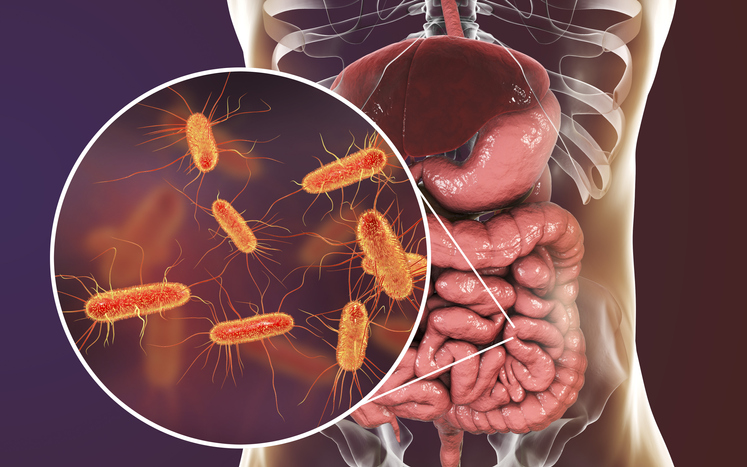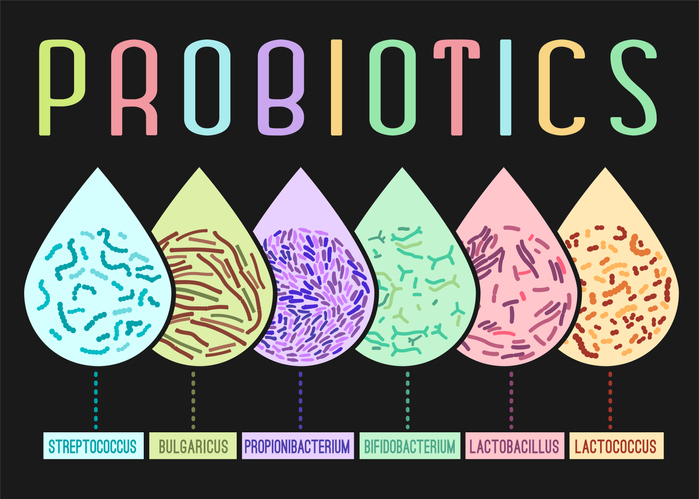Your Gut Microbiome May Predict Your Risk Of Severe Illness From COVID-19

Some common symptoms of COVID-19 include cough, shortness of breath, sore throat and even loss of smell.
But what you may not know is that gastrointestinal (gut) symptoms such as diarrhea, nausea and vomiting are reportedly found in more than 60 percent of COVID-19 patients. In addition to this, patients who experience gastrointestinal symptoms also tend to have more severe cases of COVID-19.
Somes studies have shown that COVID-19 patients with gut symptoms had higher fevers and a greater risk of liver injury, reports Medical Xpress.
According to one source,“...the molecule which the virus attacks in our bodies—Angiotensin Converting Enzyme 2 or ACE2—is present not just in our lungs, but in our gastrointestinal tract as well. This is what could be behind the significant number of cases in which patients show gastrointestinal symptoms such as diarrhea, nausea and vomiting.”

So it appears that the coronavirus does not just attack the lungs but also the gut. And some researchers suggest that the health status of an individual’s gut microbiome may be able to help predict how severe a case of COVID-19 a person may have.
“An unbalanced microbiome may create an inflammatory environment that the coronavirus can exploit. The researchers speculate that these gut-related inflammatory proteins—called cytokines—are amplified by more cytokines when coronavirus hits. The combined inflammation may ignite a ‘cytokine storm’—a runaway immune reaction that can cause more damage than the virus itself,” (Psychology Today).
Depending on age, health status, diet, medications (especially antibiotics) a person may be taking and overall lifestyle, the gut microbiome is essentially an ever-changing landscape of living organisms (trillions of them!) in the stomach and intestines. As with any community, both good and bad bacteria reside in your gut. And whether your gut has more of the ‘good’ or ‘bad’ may depend on your health and lifestyle.
A group of researchers in China looked at the blood of COVID-19 patients and identified 20 proteins connected to disease severity, according to this Psychology Today report discussing the study (which has not yet been peer-reviewed, however, still has some very compelling findings).
The proteins included immune factors that are elevated during systemic inflammation (when your body is attacked and injured by a disease such as a virus, inflammation occurs). The researchers used these markers to create a proteomic risk score (PRS), which predicts the severity of the case of COVID-19.
“Using machine learning algorithms, they were able to correlate the PRS to the gut microbiome as analyzed by fecal samples, thus linking the gut microbiome to COVID-19 severity,” reports Psychology Today.
“With COVID-19 patients, a 10 percent increase in the PRS was associated with a 57 percent higher risk of progression to a clinically severe phase of infection.”
Furthermore, “The power of PRS to predict COVID-19 severity was better than with other typical markers, including BMI, blood pressure, sex, and age.”
The researchers also saw that certain types of gut bacteria had different effects on inflammation. For example, the bacteria Ruminococcus gnavus exhibited an increase in inflammation while the bacteria Clostridia showed a decrease.
“Again, they found a strong association between these bacteria, the PRS, and COVID-19 severity—but only in older age groups.”
This makes sense because our gut microbiomes tend to naturally be less diverse and balanced as we age, which is why elderly people have to be especially proactive about taking care of their gut health.
“The healthier the gut, the better the outcome. That may be something to cheer about, because you can improve your microbiome in a matter of days just by changing your diet. It could save your life,” (Psychology Today).
Certain foods like sauerkraut, kimchi, yogurt and kombucha are sources of good bacteria (probiotics) that may have a positive impact on your gut health. And don’t forget you also need prebiotics. Prebiotics occur naturally in certain foods, including leeks, asparagus, chicory, Jerusalem artichokes, garlic, onions, wheat, oats and soybeans. Broccoli may even help with gut health.
Be mindful of any medications you are taking, both prescription and over-the-counter, as these may negatively affect your population of good bacteria in your gut.
It is also important to note that smoking and drinking alcohol in excess can disrupt the gut microbiome.
Finally, one way to determine whether your gut bacteria is balanced is to take a gut bacteria test. And if you are out of balance, you can work with a competent healthcare professional to change your diet or find quality nutritional supplements to take.
Enjoy your healthy life!
The pH professional health care team includes recognized experts from a variety of health care and related disciplines, including physicians, attorneys, nutritionists, nurses and certified fitness instructors. This team also includes the members of the pH Medical Advisory Board, which constantly monitors all pH programs, products and services. To learn more about the pH Medical Advisory Board, click here.







